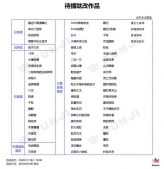在使用vue框架进行前后端分离项目开发时,通常涉及到与后段接口进行交互,平时一般使用比较多的就是用axios来实现调用后段接口,写法一般为
|
1
2
3
4
5
6
|
xxx() { const _this = this axios.get("http://ip:port/xx/xx").then(function (resp) { .....//省略 }) } |
但是有一个比较普遍的问题就是,假如我们后端接口地址改变了,或者是网络地址发生了变化,就需要在上面IP以及端口的位置每一处都需要修改,所以我们需要一个一处设置 处处可用的配置,如下
在src目录下新建interface文件夹,新建index.js文件
|
1
2
3
4
5
6
7
|
//配置全局访问接口地址let commonUrl = "http://ip:port"; let baseUrl = { commonUrl}export default baseUrl |
在main.js中引入上述配置
import api from "./interface/index" Vue.prototype.$api = api.commonUrl
接下来在原axios调用接口的位置稍作修改即可实现正常调用接口了
|
1
2
3
4
5
6
7
|
xx() { const _this = this axios.get(this.$api + "/xx/xx").then(function (resp) { ..... } }) } |
补充知识:vue项目:(全局变量设置与调用)API接口封装 - 代码篇
vue项目,如何将“API接口” 封装为“全局变量” ?
1. API全局配置文件【global.vue文件】
|
1
2
3
4
5
6
7
8
9
10
11
12
13
14
15
16
17
18
19
20
|
<template> <div> </div> </template><!-- API全局变量 --><script> // 本地 接口地址 const localSrc = 'http://192.168.0.103:8444'; // 线上 接口地址 const serverSrc = 'http://www.xxxxxx.com:8080/jobs-api'; export default{ localSrc, serverSrc }</script><style></style> |
2. 全局注册引入文件 【main.js文件】
|
1
2
3
|
// 引入API接口文件import global_ from './components/api/global'//引用文件Vue.prototype.GLOBAL = global_//挂载到Vue实例上面 |
3. 如下代码片段:【注释1、注释2、注释3】
|
1
2
3
4
5
6
7
8
9
10
11
12
13
14
15
16
17
18
19
20
21
22
23
24
25
26
27
28
29
30
31
32
33
34
35
36
37
38
39
40
41
42
43
44
45
46
47
48
49
50
51
52
53
54
55
56
57
58
59
60
61
62
63
64
65
66
67
68
69
70
71
72
73
74
75
|
methods: { ajaxLoginApi: function (form) { var that=this.form; // 放置指针,便于then操作的获取 console.log("账号"+that.username+"密码"+that.pwd); // var localPath = 'http://192.168.0.103:8444'; // var ecsPath = 'http://www.1688jobs.com:8080/jobs-api/' var localPath = this.GLOBAL.localSrc; // 本地 接口地址 【注释1】 var serverPath = this.GLOBAL.serverSrc; // 线上 接口地址【注释2】 axios.post( serverPath + '/login', // 【注释3】 { // 'userName':'17681135201', // 'userPwd':'123456', // 'userType':"2" 'userName': this.form.username, 'userPwd': this.form.pwd, 'userType':"2" }, { headers: { 'Content-Type':'application/json', //'Authorization':'eyJ0eXAiOiJKV1QiLCJhbGciOiJIUzI1NiJ9.eyJ1c2VySWQiOiI1QUZFRkQ4NTNFNjIwNDIyOEIwNDE3MzdCMDdBNEJCNURDNTBEQjA4OUFCQzBENDM4MDA5RkM4REU4QkMyODkzIiwidXNlck5hbWUiOiIxNzY4MTEzNTIwMSIsInVzZXJBZ2VudCI6Ik1vemlsbGEvNS4wIChXaW5kb3dzIE5UIDEwLjA7IFdpbjY0OyB4NjQpIEFwcGxlV2ViS2l0LzUzNy4zNiAoS0hUTUwsIGxpa2UgR2Vja28pIENocm9tZS82OC4wLjM0NDAuMTA2IFNhZmFyaS81MzcuMzYiLCJleHAiOjE1NTE5MzYzODQsIm5iZiI6MTU1MTkzNDU4NH0.YgRW-Wnlk_Gz64id_jTocH68oj8DuZuI1WyQBmmrt7c' } }, ) .then(function (response) { console.log("response="+response); console.log("responseheader="+response.headers); var reslutData = response; // console.log(reslutData.data.code); // 登录账号和密码 检测 if (reslutData.data.code == 2006) { // 用户名不存在 this.$notify.error({ title: reslutData.data.message, duration: 2000 }); return false; } if (reslutData.data.code != 200) { // 登录失败 this.$notify.error({ title: reslutData.data.message, duration: 2000 }); return false; } else { // 登录成功 // 弹框成功提示 this.$notify({ title: reslutData.data.message, // message: '正在跳转中···', type: 'success', duration: 2000 }); console.log("token=" + reslutData.data.data.token) // token写入本地客户端存储 localStorage.setItem("token",reslutData.data.data.token); // token获取本地客户端存储 // var key = localStorage.getItem("token"); // console.log("key=" + key) // 成功之后执行跳转 this.$router.replace this.$router.replace('/search'); } }.bind(this)) .catch(function (error) { console.log("请求失败"+error); }); }, |
以上这篇vue设置全局访问接口API地址操作就是小编分享给大家的全部内容了,希望能给大家一个参考,也希望大家多多支持服务器之家。
原文链接:https://blog.csdn.net/gl19980514/article/details/107297575





